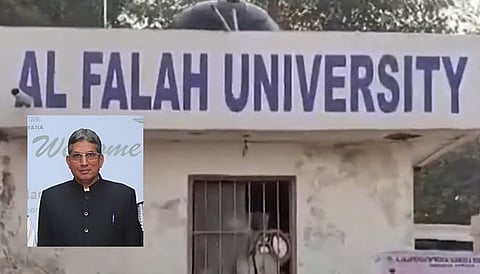Siddiqui’s early business ventures drew legal action: an FIR in Delhi which (No. 43/2000, Delhi’s New Friends Colony) accused him of running a fake investment scheme which raised around ₹ 7.5 crore from investors, converting deposits into shares via forged documents. He was arrested in 2001 and spent over three years in custody before being released in 2004 after agreeing to refund investors.
The case included charges under IPC sections 420 (cheating), 406/409 (criminal breach of trust), 468/471 (forgery), and 120B (criminal conspiracy).
In 2020, the university and Siddiqui again drew attention when fresh investigations were initiated into Al-Falah–linked investment schemes, following complaints from a group of marginalised Muslim investors who alleged that Siddiqui and the institution had misled them into what were promoted as “halal” investment opportunities, claims that remained under official examination at the time.
In 2025, as investigators probed the Red Fort blast, the university and Siddiqui came under fresh scrutiny:
Regulatory bodies also issued warnings: the Association of Indian Universities suspended Al-Falah’s membership, stating the institution “does not appear to be in good standing.”
There are also reports that University have been receiving unauthorised foreign donations from Arab countries.


